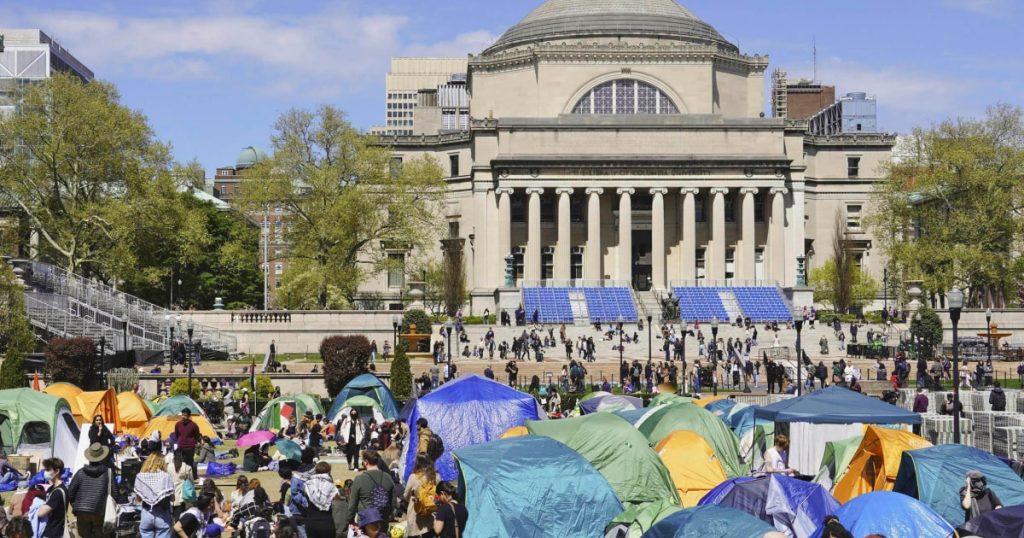Protesting students at Columbia University are in a standoff with the administration over the university’s investments in companies profiting from Israeli foreign policy. The students are demanding that Columbia withdraw any financial ties to Israel, but negotiations have reached an impasse with no clear timeline for resolution. The encampment of pro-Palestinian students on the university’s campus has been ongoing for over a week, with talks continuing as exams and commencement ceremonies approach. The students fear that the university may bring in outside law enforcement to clear the encampment, and they do not trust the institution to keep their promises.
Columbia University officials have stated that discussions with the student protesters are ongoing and have shown progress towards dismantling the encampment and adhering to university policies. However, the students remain skeptical and feel that the university is not fully acknowledging the extent of their movement. The negotiation team representing the students has been working tirelessly to maintain communication with Columbia, but tensions remain high as the university has threatened to bring in the National Guard and NYPD if necessary. The situation at Columbia has inspired similar protests at other universities across the country, including the University of Southern California, where a star-studded commencement ceremony was canceled due to student protests against Israel’s actions.
The protests at Columbia and other universities come in response to the ongoing conflict between Israel and Hamas, with devastating consequences in Gaza. The students at Columbia and other campuses are calling attention to the humanitarian crisis in Gaza and demanding that their universities divest from any financial connections to Israel. The demonstrations have garnered national attention and are raising awareness about the impact of foreign policy decisions on communities around the world. The students remain committed to their cause, despite facing pressure from their universities and external forces.
As talks between protesting students and Columbia University continue, the situation remains fluid with no clear resolution in sight. The students are adamant in their demands for Columbia to withdraw any investments linked to Israel, and they fear that the university may escalate the situation by bringing in law enforcement to disperse the encampment. The negotiations are ongoing, but tensions are high as exam season approaches and the university faces increasing pressure to restore normalcy to campus. The students remain determined to see their demands met and are prepared to continue their protests until they achieve their goals.
The standoff between protesting students and Columbia University reflects broader concerns about foreign policy, divestment, and social justice on college campuses across the country. The demonstrations have sparked a wave of solidarity protests at universities from coast to coast, highlighting the interconnectedness of global issues and the power of student activism. The students are drawing attention to the conflict in Gaza and advocating for divestment from companies implicated in human rights abuses, demonstrating a commitment to social justice and equality. The protests at Columbia and other universities serve as a reminder of the importance of political engagement and the potential for positive change through collective action.


